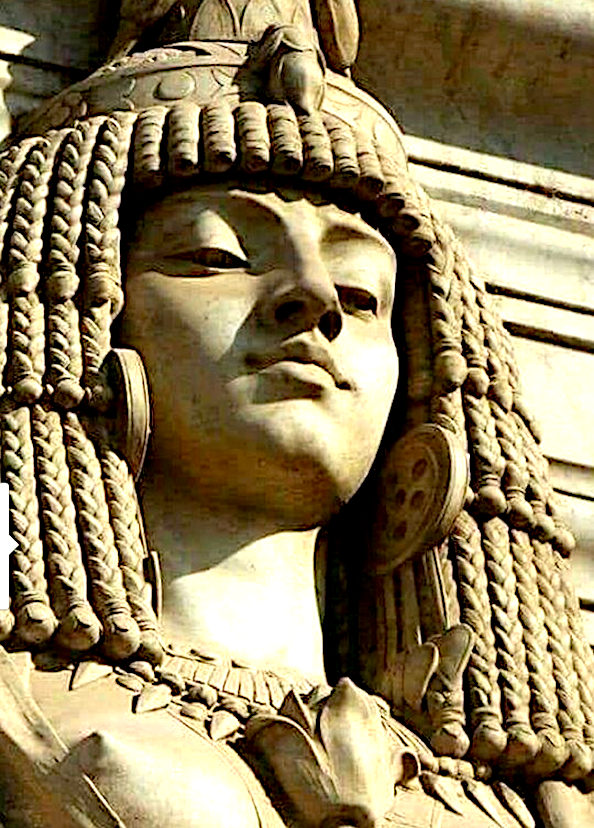
To this day, Cleopatra remains a popular figure in Western culture. Her legacy survives in numerous works of art and the many dramatizations of her story in literature and other media, including
William
Shakespeare's tragedy Antony and Cleopatra, Jules Massenet's opera Cléopâtre and the film
Cleopatra
(1963). Cleopatra
is known to have written books on medicine and cosmetics,
though destroyed in the fire that consumed the Library at
Aleandria.
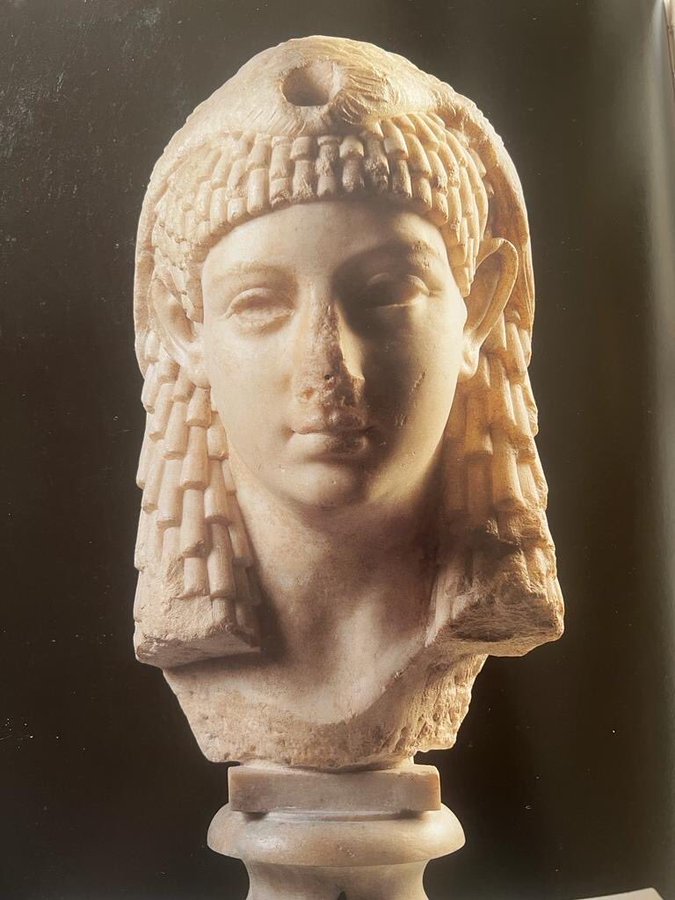
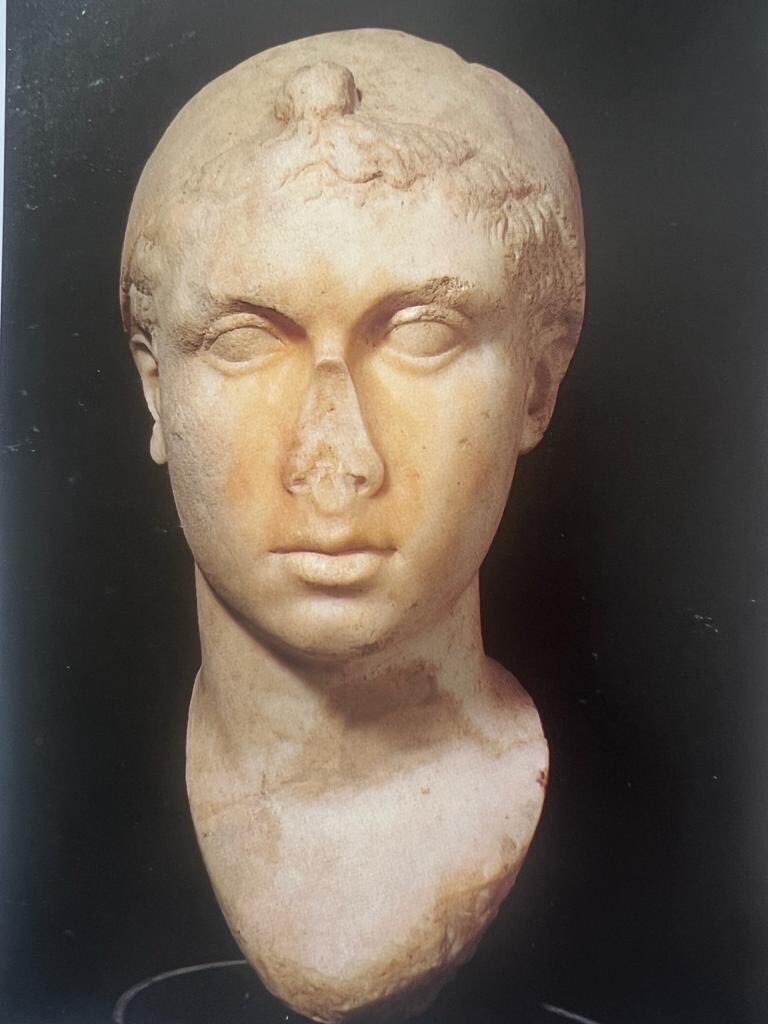
Marble
sculpture, some of which may give an idea of Cleopatra's likeness
Cleopatra is the Queen of Egypt. Notoriously one of the most difficult characters to play in all of
Shakespeare, she is deeply erotic, charismatic, theatrical, volatile, temperamental, and generally unclassifiable.
She seems to seduce every man she meets, leading her to be considered both an enchantress and a whore. An emblem of Oriental decadence, she is contrasted to the puritanical
Romans, especially Caesar and Octavia, and it is her drawing Antony into her net that brings about his downfall, as he “goes native” under her influence, giving Caesar a handy excuse to cast Antony as a traitor to Roman principles. She may or may not have a genuine sentimental attachment to Antony; that is a matter of interpretation. If she does not, then she is using her erotic wiles to subjugate him so as to keep herself in power. She was once the lover of
Julius
Caesar, whom she claims was next to nothing compared to Antony.
Excellent at staging herself to awe viewers (as she clearly managed to do to Enobarbus), she nevertheless possesses several vulnerabilities, not the least of which is her awareness that she is aging, which leads her to fear that Octavia make draw Antony from her. She is afraid that her darker
Hellenistic-Macedonian
skin may make her less appealing, along with her wrinkles. The extent to which Antony is under her spell, however, is revealed in the tales of how she drew him into cross-dressing with her. She is also able to make him disregard a direct messenger from
Rome, mocking all that the Romans could possibly have to say. She plays at being sullen to disconcert Antony, but sends endless messengers to him when he is away, and appears to be unable to focus on anything in his absence. She has fits of violent temper, and beats the messenger who announces Antony’s marriage to Octavia until he runs away and is scared to return to her presence. She sends him to find out what Octavia looks like, and manages to reassure herself that she is herself the more attractive, though the messenger’s youthful indiscretion on the matter of age does not help.
When war comes between Caesar and Mark
Antony, she insists on joining in the war in person, despite being a woman, and argues for the battle at sea. In the middle of the battle, however, she takes fright and runs with all her fleet, and Antony follows. Despite this disgrace to him, she is able to apologize and remain in his good favor. When Thidias comes to convince her to switch to Caesar’s side, she speaks flatteringly of Caesar, and offers her subjection. (This may be a deception on her part, or not.) She attempts to help arm Antony before the next battle, despite not knowing how the various bits and pieces of armor fit together. When Antony is convinced that she has betrayed him during the battle, he turns on her in rage, and she runs from him, afraid for her life. She locks herself in her monument, and at
Charmian’s suggestion sends him word that she has killed herself, to find out how he will take the news.
When he bungles his suicide and is brought to her, she refuses to exit the monument, out of fear, but helps to lift him in. She faints at his death. She speaks kindly to Proculeius, but on being seized by the Romans enters into a rage and threatens to kill herself, if need be by starving. When Caesar comes to her, she offers her submission, including giving him a scroll containing a list of all she possesses. This list, it turns out, is incomplete. All of this is done to make Caesar believe that she wishes to live, just as he speaks kindly to her to keep her from killing herself. But knowing that Caesar intends to lead her in a Triumph, she has herself dressed in her finest robes of state, and having had
poison
asps brought her by a country fellow, she allows them to bite her, one of the breast, the other on the
arm, and dies.
FAMILY
HISTORY
Daughter of
Ptolemy XII
Auletes (80-52BC), Pharaoh of Egypt and (thought
to be) Cleopatra V
Tryphaena.
Wife of
Ptolemy
XIII (her brother), Pharaoh of Egypt; Ptolemy
XIV, Pharaoh of Egypt
Partner of Julius
Caesar, Roman Dictator, and then Marcus Antonius
"Mark
Antony"
Sister of Arsinoë IV of Egypt;
Ptolemy
XIII, Pharaoh of Egypt; Ptolemy
XIV, Pharaoh of Egypt; Berenice
IV; Philadelphus of Egypt and Ptolemy of Egypt.
Mother of Ptolemy XV
'Caesarion', Pharaoh of Egypt; Alexander Helios; Cleopatra Selene
II, Queen of Mauretania and Ptolemy Philadelphus.
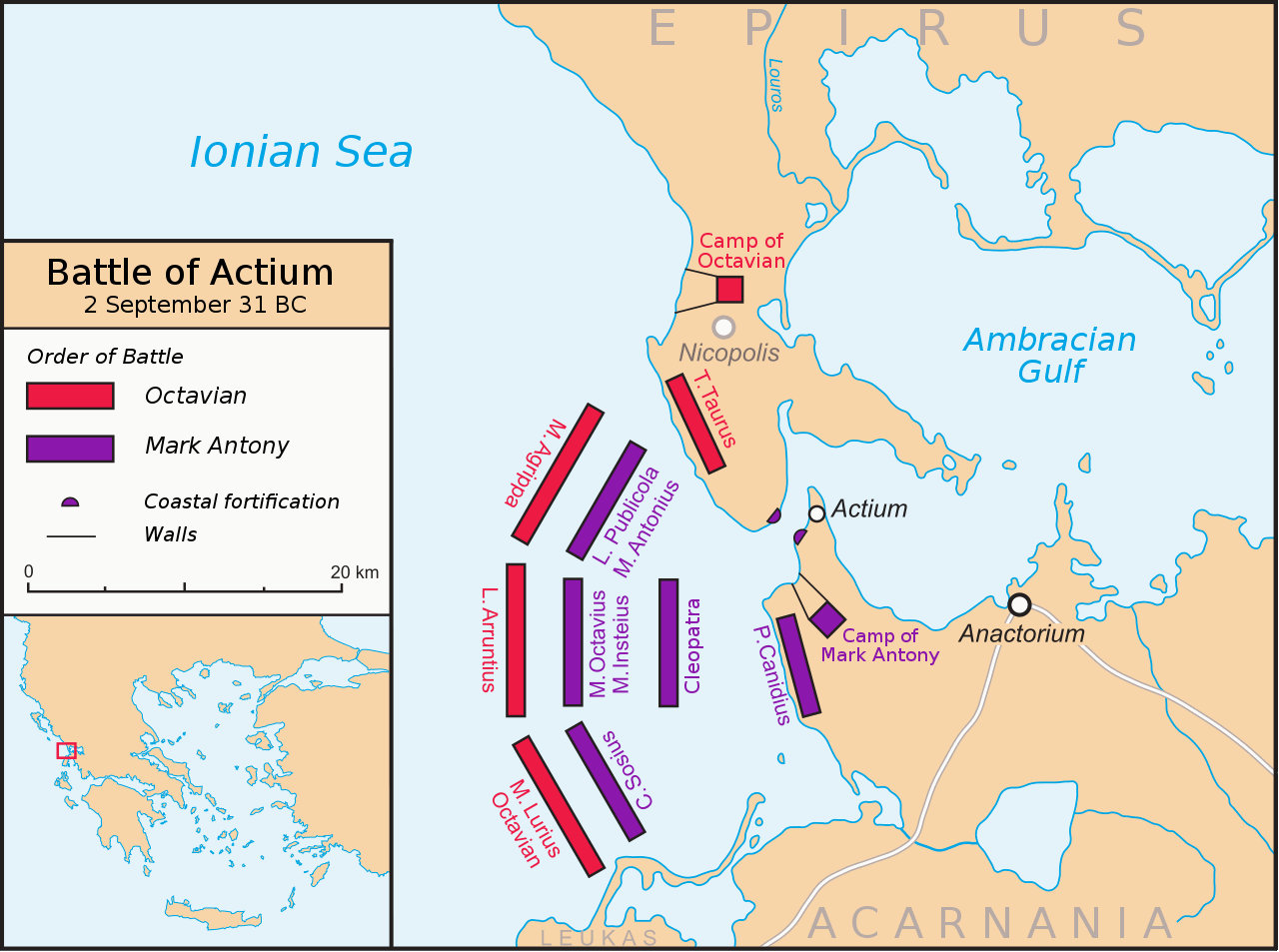
BATTLE
OF ACTIUM
Agrippa was again called away to take command of the fleet when the war with
Antony and Cleopatra broke out. He captured the strategically important city of Methone at the southwest of the Peloponnese, then sailed north, raiding the Greek coast and capturing Corcyra (modern Corfu). Octavian then brought his forces to Corcyra, occupying it as a naval base. Antony drew up his ships and troops at Actium, where Octavian moved to meet him. Agrippa meanwhile defeated Antony's supporter Quintus Nasidius in a naval battle at Patrae. Dio relates that as Agrippa moved to join Octavian near Actium, he encountered Gaius Sosius, one of Antony's lieutenants, who was making a surprise attack on the squadron of Lucius Tarius, a supporter of Octavian. Agrippa's unexpected arrival turned the battle around.
As the decisive battle approached, according to Dio, Octavian received intelligence that
Antony and Cleopatra
planned to break past his naval blockade and escape. At first he wished to allow the flagships past, arguing that he could overtake them with his lighter vessels and that the other opposing ships would surrender when they saw their leaders' cowardice. Agrippa objected, saying that Antony's ships, although larger, could outrun Octavian's if they hoisted sails, and that Octavian ought to fight now because Antony's fleet had just been struck by storms. Octavian followed his friend's advice.
On 2 September 31 BC, the Battle of Actium was fought. Octavian's victory, which gave him the mastery of Rome and the empire, was mainly due to Agrippa. Octavian then bestowed upon him the hand of his niece Claudia Marcella Major in 28 BC. He also served a second consulship with Octavian the same year. In 27 BC, Agrippa held a third consulship with Octavian, and in that year, the Senate also bestowed upon Octavian the imperial title of Augustus.
In commemoration of the Battle of Actium, Agrippa built and dedicated the building that served as the Roman Pantheon before its destruction in AD 80. Emperor Hadrian used Agrippa's design to build his own Pantheon, which survives in Rome. The inscription of the later building, which was built c. 125, preserves the text of the inscription from Agrippa's building during his third consulship.
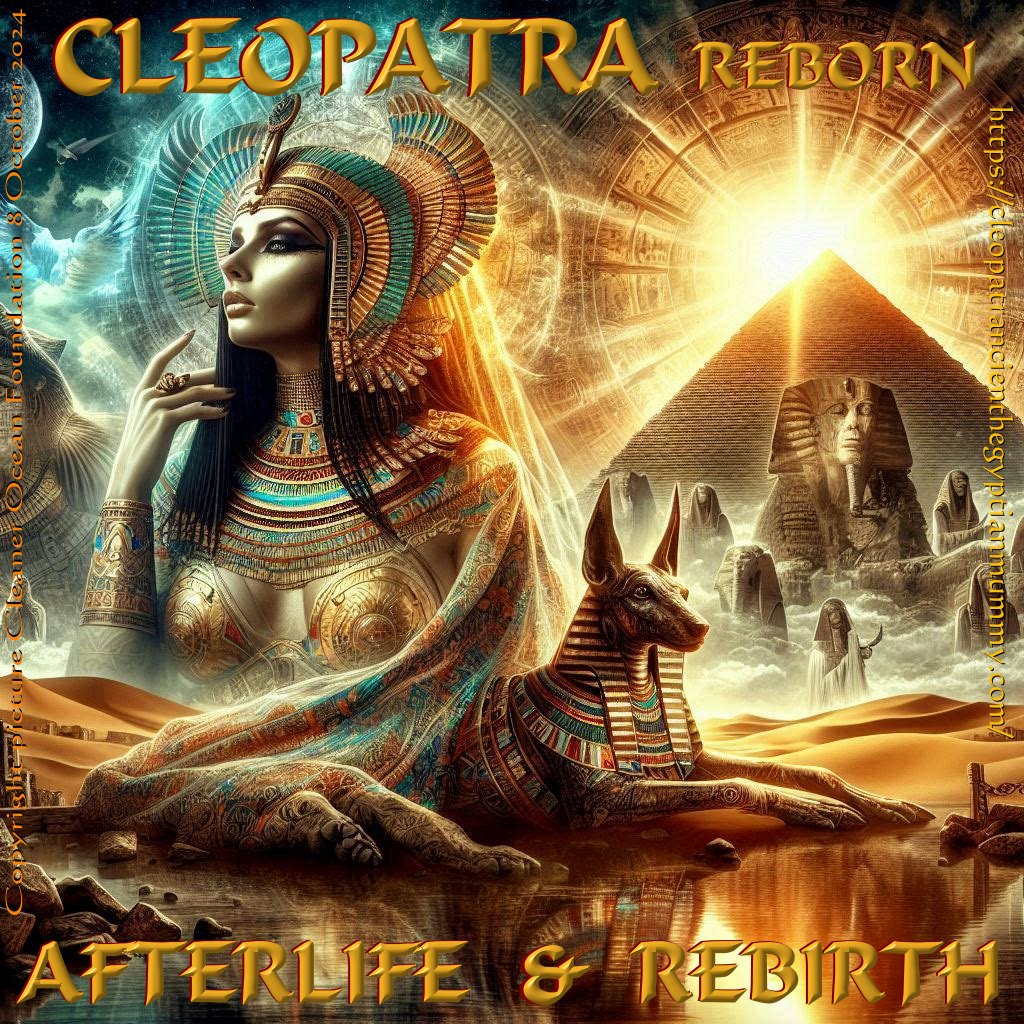 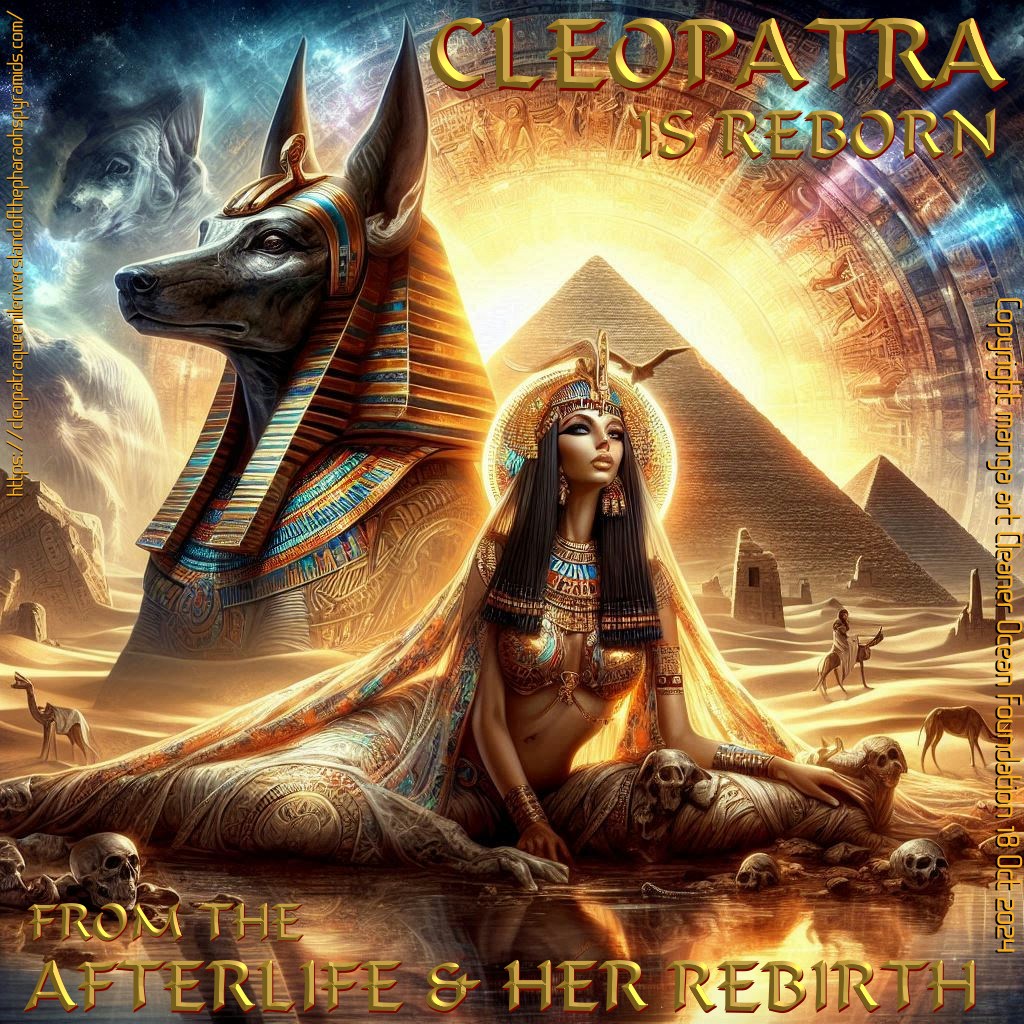
CLONED
REPLICANT - Using the latest technology in computer genome mapping and
digital DNA splicing, a brotherhood of progressive scientists reincarnate Cleopatra
VII, who died in 30BC, having located and plundered her sarcophagus from
its watery grave. The resurrected Pharaoh has to mesh with the modern
world she's been reborn into, against antagonists various, including the
CIA and Vatican.
|





